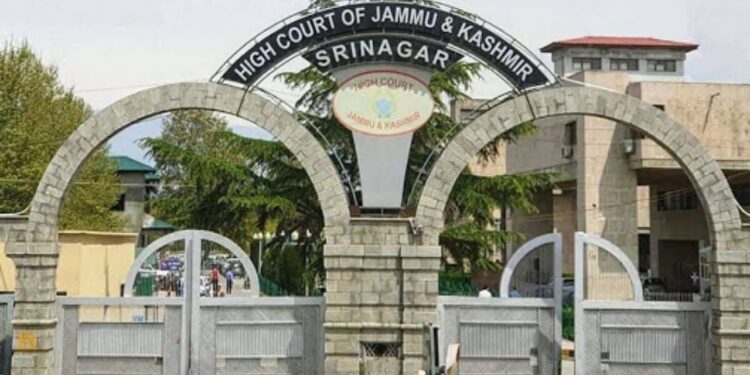Jammu & Kashmir High Court: Face Covering by Women Advocates Not Permissible
The High Court of Jammu and Kashmir and Ladakh recently observed that the Bar Council of India (BCI) rules governing the dress code for women advocates do not allow them to appear in court with their faces covered. This clarification came during proceedings where the court examined whether face coverings by women lawyers align with prescribed professional standards.
The Incident
On November 27, a person identifying herself as Advocate Syed Ainain Qadri appeared before the High Court with her face covered, claiming to represent petitioners in a plea to quash a domestic violence case. Although she wore the prescribed advocate’s attire, her refusal to remove the face cover upon the Court’s request led to questions about her identity.
Justice Rahul Bharti, who presided over the case, declined to accept her representation, stating:
“This court does not entertain the appearance of the person identifying herself to be Advocate Ms. Syed Ainain Qadri as counsel for the petitioners as this Court has no basis/occasion to confirm her actual identity both as a person as well as professional.”
The Court adjourned the case and directed the Registrar General to clarify whether any rule allows women advocates to appear in court with their faces covered.
BCI Rules and Court Observations
The Registrar General submitted a report on December 5, confirming that the BCI rules do not permit such attire. Justice Moksha Khajuria Kazmi reviewed the matter on December 13, citing rules under Section 49(1)(gg) of Chapter IV (Part VI) of the BCI, which prescribes a specific dress code for women advocates.
Justice Kazmi emphasized:
“It is nowhere stated in the rules that any such attire is permissible for appearing before this Court.”
The Court highlighted that maintaining courtroom decorum and ensuring the identity of legal representatives are fundamental to the judicial process.
Fundamental Rights Argument
During the November 27 hearing, the advocate insisted that appearing with a face cover was her fundamental right. However, the Court maintained that professional guidelines must be followed within judicial proceedings, overriding personal preferences in attire when they conflict with prescribed standards.
Final Outcome
After another lawyer stepped in to represent the petitioners, the case proceeded, and Justice Kazmi reserved judgment on December 6. The petition was dismissed on December 13 on procedural grounds, as an alternative remedy was available.
Broader Implications
This case underscores the judiciary’s commitment to upholding professional ethics and ensuring transparency in court proceedings. It reaffirms that fundamental rights must be exercised within the boundaries of professional regulations, particularly in a courtroom setting. The High Court’s observations reinforce the importance of courtroom decorum, clarity of identity, and adherence to BCI rules for legal practitioners.

















